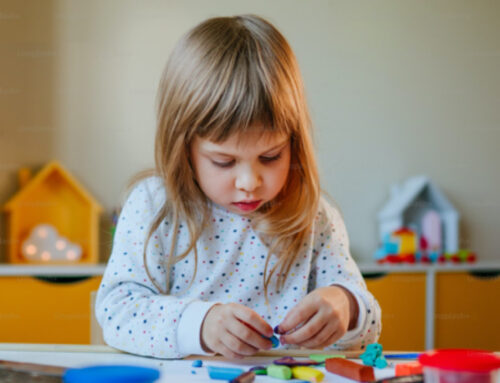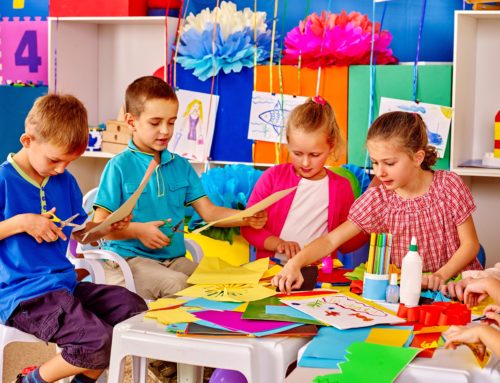The Impact of Technology on Children: Balancing Screen Time and Healthy Development

In today’s digital age, it’s no surprise that children are growing up surrounded by technology. From smartphones and tablets to laptops and gaming consoles, digital devices have become an integral part of their daily lives. While these devices offer numerous benefits and educational opportunities, there is growing concern about the potential negative impact of excessive screen time on children’s development. In this article, we will explore the effects of technology on children and provide guidelines for parents to strike a balance between screen time and healthy development.
The Brain Development of Children and Screen Time
Paediatricians and researchers have long emphasized the importance of early childhood development. During the first five years of life, the brain undergoes rapid growth and forms crucial neural connections. However, excessive screen time can interfere with this critical period of brain development.
According to a study conducted by Dr. John Hutton, a paediatrician and clinical researcher, children between the ages of 3 to 5 who use screens for more than the recommended one hour a day without parental involvement have lower levels of development in the brain’s white matter. The white matter is responsible for language, literacy, and cognitive skills. This finding highlights the potentially detrimental effects of excessive screen time on children’s brain development.
Negative Effects of Excessive Screen Time on Children
Excessive screen time can have a wide range of negative effects on children’s physical, cognitive, and social well-being. Here are some key areas that may be affected:
Cognitive Development and Learning
Spending excessive time in front of screens can impair children’s cognitive development and learning abilities. Studies have shown that excessive television viewing is associated with attention problems, poor academic performance, and delayed language development. The passive nature of screen time limits children’s active engagement and interaction, which are crucial for learning and cognitive growth.
Behavioural and Emotional Issues
Excessive screen time has been linked to behavioral and emotional issues in children. Research has shown that children who spend more time on screens are more likely to exhibit symptoms of depression, anxiety, and aggression. Excessive screen time can also disrupt sleep patterns, leading to sleep deprivation, irritability, and difficulty in regulating emotions.
Social Development and Communication Skills
Digital devices can hinder children’s social development and communication skills. Excessive screen time reduces face-to-face interactions and opportunities for social engagement with peers and adults. This can impact children’s ability to develop and maintain healthy relationships, empathy, and effective communication skills.
Physical Health
Excessive screen time is often associated with a sedentary lifestyle, which can lead to various physical health issues such as obesity, poor posture, and musculoskeletal problems. Children who spend more time on screens are less likely to engage in physical activities and outdoor play, which are essential for their overall health and well-being.
Guidelines for Managing Children’s Screen Time
While technology can be a valuable tool for learning and entertainment, it’s crucial for parents to set healthy boundaries and monitor their children’s screen time. Here are some guidelines to help strike a balance:
-
Establish Clear Screen Time Rules
Set clear and consistent rules regarding screen time. Establish specific time limits for device usage and designate screen-free zones and periods, such as during meals and before bedtime. Consistency is key to helping children understand and adhere to these rules.
-
Engage in Co-viewing and Co-playing
Whenever possible, engage in co-viewing and co-playing activities with your children. Watch their favourite shows or play interactive games together. This not only allows for quality bonding time but also provides an opportunity for discussion and learning.
-
Prioritize Active and Outdoor Play
Encourage your children to engage in active and outdoor play. Provide them with opportunities for physical activities, such as sports, swimming, or cycling. Active play promotes physical fitness, social interactions, and the development of gross motor skills.
-
Promote Alternative Forms of Entertainment
Encourage your children to explore alternative forms of entertainment that do not involve screens. Provide them with books, puzzles, art supplies, and board games that stimulate their imagination, creativity, and problem-solving skills.
-
Model Healthy Device Use
As a parent, it’s important to model healthy device use. Be mindful of your own screen time habits and ensure that you are setting a positive example for your children. Limit your own screen time and prioritize face-to-face interactions with your family.
-
Use Parental Controls and Monitoring Apps
Utilize parental controls and monitoring apps to manage and track your children’s device usage. These tools allow you to set time limits, filter content, and monitor their online activities, ensuring their safety and promoting responsible device use.
Intooit Kids Play Club: A Solution for Balanced Play and Development
In addition to implementing guidelines for managing screen time, providing children with opportunities for physical play and social interaction is essential for their overall development. Intooit Kids Play Club, located in Marbella, is a premier indoor play venue that offers a safe, engaging, and fun environment for children to explore, learn, and interact with their peers.
Intooit Kids Play Club provides the best soft play experience in Marbella, offering a variety of exciting activities and play areas designed to stimulate children’s physical, cognitive, and social development. From a soft play labyrinth and ball pit to imaginative play zones, Intooit offers a range of play opportunities that promote creativity, problem-solving, and physical fitness.
Intooit Kids Play Club is the perfect place to host your child’s birthday party. Our experienced staff will ensure that your child and their friends have a memorable celebration in a secure environment. As the premier private party venue for kids in Puerto Banus, we offer a bespoke party setting that parents and children can appreciate alike.
At Intooit Kids Play Club, we prioritise the well-being and development of children. By providing a stimulating and interactive play environment, we aim to support their physical, cognitive, and social growth while fostering a sense of joy, curiosity, and imagination.
Conclusion
While technology can offer valuable learning experiences and entertainment for children, it is crucial to strike a balance between screen time and healthy development. Excessive screen time can have negative effects on children’s brain development, cognition, behaviour, and social skills. By following guidelines for managing screen time and providing opportunities for physical play and social interaction, parents can help promote their children’s healthy development.
Intooit Kids Play Club in Marbella offers a solution for balanced play and development, providing a safe and enjoyable environment for children to learn, explore, and interact with their peers. By combining responsible device use with physical play and social engagement, parents can ensure that their children have a well-rounded and enriching childhood.







Leave A Comment